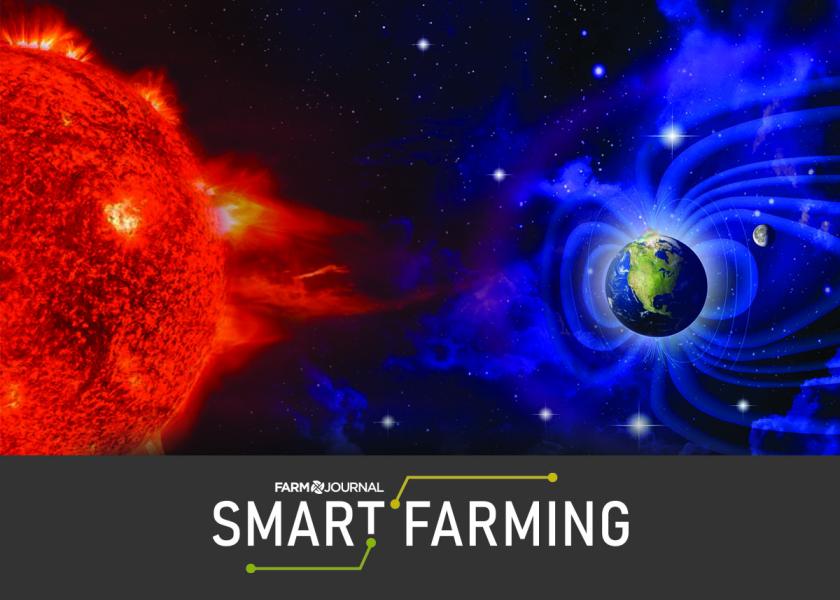Space Weather: Start Planning Today for Tomorrow’s GPS Outage

Farm Journal’s Smart Farming Week is an annual week-long emphasis on innovation in agriculture. The goal is to encourage you to explore and prioritize the technology, tools and practices that will help you farm smarter. Innovation today ensures an efficient, productive and sustainable tomorrow.
It’s a simple question, but one that Dr. Terri Griffin, Kansas State University, suspects many farmers would have a hard time answering “Yes” to: Can you plant or harvest a crop without GPS?
Instances of space weather, or solar flare events, can and often do cause GPS failures. Griffin says a lot of important, powerful and smart people in world government are concerned about these events becoming more commonplace.
Looking at the production cycle specifically, such an event occurring in January is probably not a big deal to farmers as the vast majority aren’t planting or harvesting during that time. But, if one of these “atmospheric scintillations” were to occur during the busy spring planting or fall harvest season?
“With today’s connected equipment you can’t plant without GPS lock, which requires getting connection with a minimum of four satellites, the seeds won’t drop,” he says. “So, the question becomes, do we wait it out? Or do we keep an old 6-row ‘dumb planter’ with row markers for just these instances?”
Griffin has been monitoring the situation from his Kansas State University lab in Manhattan for some time now. He says this summer’s Northern Lights event over North America was a geomagnetic storm that did have a temporary negative effect on GPS signals.
Not to mention, there are warnings abound from government agencies that predict such things (NOAA, NASA, etc.) that the world should expect a widespread outage at some point during Solar Cycle 25 – which is the cycle we’re in currently.
“We are approaching solar max in the next six months to a year,” Griffin says. “I am fully expecting to have GPS blackouts at some point soon at this latitude. Think about how we use GPS – the airline industry, for one, is paying a lot of attention to this, as they should be.”
Farmers could conceivably manage a widespread GPS outage by investing in a local RTK network. Griffin says RTK is great in that it is a set, earthly signal, and you can basically create your own local positioning system with three or more ground stations. It is an expensive backup plan, though, he admits.
Griffin has three recommendations for farmers in the field when a previously robust GPS signal proves suddenly suspect:
1.) Don’t panic. Instead, wait it out and be patient. Most GPS outages are only temporary. Griffin says an R2 intensity event in space would result in just a one-hour outage, but a more robust R4 would likely mean an entire week without GPS. “That could get really tough if you’re in the middle of planting or harvesting,” he admits, adding that many sprayers also require GPS connection.
2.) Don’t blame your equipment dealer. It’s likely not their fault, and they might not even be aware there is a regional outage. Instead, give your sales rep a quick call or text to see if there is an outage within their systems.
3.) Check NOAA’s Planetary K Index. You can even sign up for email alerts to let you know if you’re in the midst of one of these space weather induced outages.
“Can you legislate (against) sunspots,” Griffin adds. “I mean, someone will try to, but that’s probably not possible. What will we do when these events occur?”
More Smart Farming Week Content
Here's How to Bridge the Data Gap With Your Ag Retailer
Inside AMVAC's Strategy To Widen Precision Agriculture Adoption







